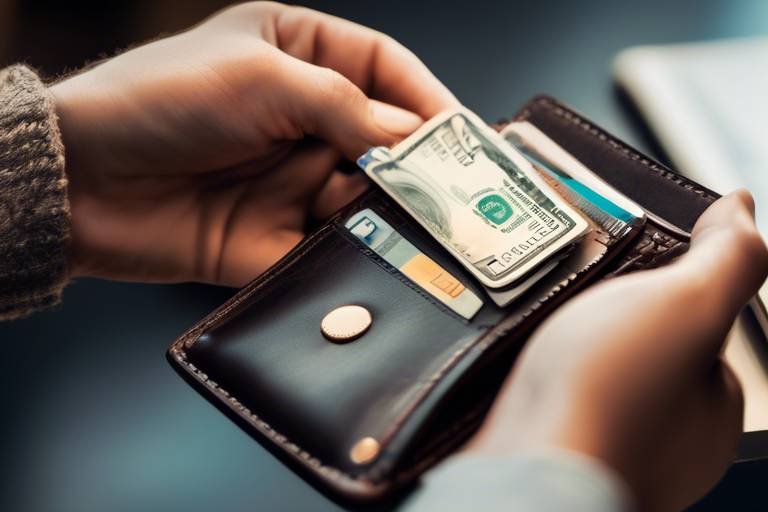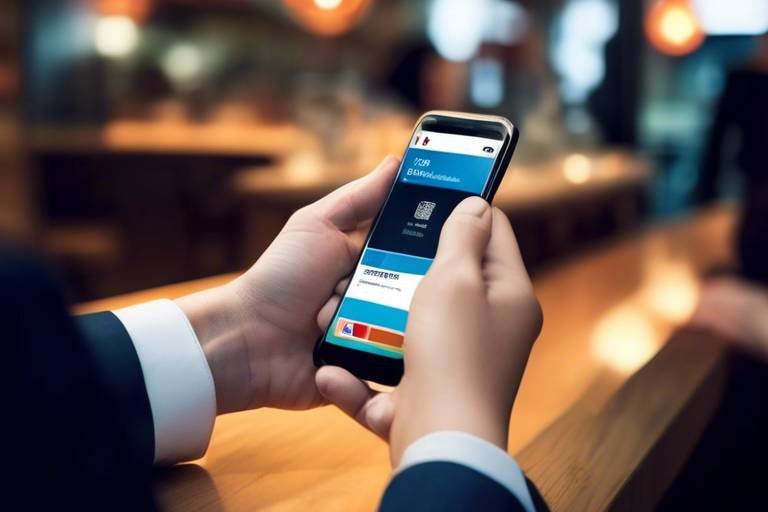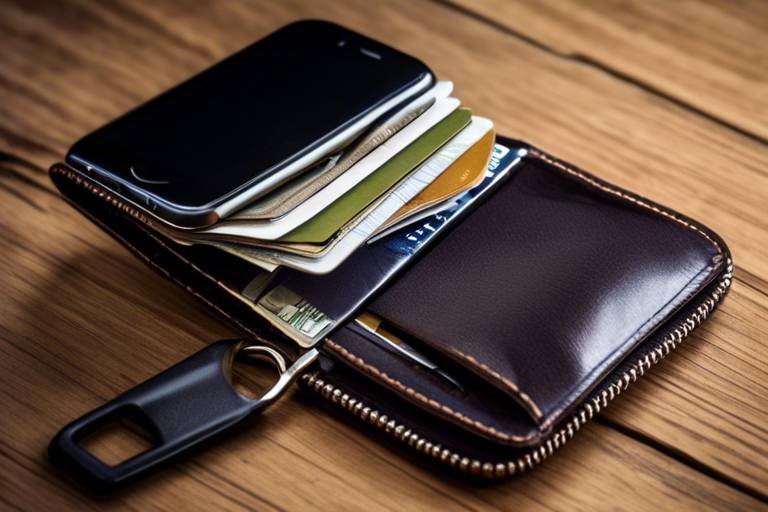Choosing Between Hot and Cold Wallets - What You Need to Know
In the world of cryptocurrencies, choosing the right wallet is akin to picking the safest place to store your valuables. With the rapid rise of digital currencies, understanding the intricacies of hot and cold wallets is essential for anyone looking to dive into this exciting yet volatile market. So, what’s the real difference between these two types of wallets, and how do you decide which one is right for you? Let’s unravel the mystery!
Hot wallets are like your everyday wallet—convenient and easily accessible, but they require a bit more caution. These wallets are connected to the internet, allowing you to access your cryptocurrencies quickly and effortlessly. Imagine being able to grab your cash from your wallet at a moment's notice; that's the beauty of hot wallets. However, this convenience comes with a trade-off. Because they are constantly online, hot wallets are more vulnerable to cyber threats. Think of them as a house with an open door—easy to enter but also easy for unwanted guests to invade.
On the flip side, cold wallets are the Fort Knox of cryptocurrency storage. These wallets are not connected to the internet, making them less susceptible to hacking and online theft. They are perfect for those who plan to hold onto their cryptocurrencies for the long haul, much like storing away family heirlooms in a safe. However, this enhanced security does come at a cost; accessing your funds can be less convenient, especially if you need to make quick transactions. It’s like having your valuables locked away in a safe—you know they’re secure, but getting to them might take a bit of time.
Hot wallets come in various forms, each catering to different user needs. Here’s a quick overview of the most common types:
- Web Wallets: Accessible through your browser, these wallets are user-friendly but can be susceptible to phishing attacks. Always ensure you’re on the official website before entering sensitive information.
- Mobile Wallets: These apps on your smartphone offer on-the-go access to your cryptocurrencies. However, if your device is compromised, so is your wallet.
- Desktop Wallets: Installed on your computer, these wallets provide a good balance of security and convenience, but they can be vulnerable if your computer is infected with malware.
Web wallets are incredibly convenient for users who need to access their cryptocurrencies from anywhere. However, they require careful management of security practices to mitigate risks. Always use strong passwords and be wary of phishing attempts.
Mobile wallets are perfect for those who are always on the go. They allow quick access to your funds with just a tap on your phone. But remember, if your phone falls into the wrong hands, your cryptocurrencies could be at risk.
Cold wallets also come in different forms, primarily focusing on security. The two most popular types are:
- Hardware Wallets: These are physical devices that store your cryptocurrencies offline. They are generally considered the most secure option.
- Paper Wallets: A more traditional approach, paper wallets involve printing your private keys on paper. While they are immune to online attacks, they can be easily lost or damaged.
When it comes to deciding between hot and cold wallets, understanding the security implications is crucial. Each type has its own vulnerabilities and protective measures to consider. Hot wallets, while convenient, require you to be vigilant about online threats. Cold wallets, on the other hand, offer peace of mind but demand a bit more effort in terms of access and management.
To enhance security for hot wallets, users should:
- Employ strong passwords that are difficult to guess.
- Utilize two-factor authentication for an added layer of security.
- Remain vigilant against potential online threats, such as phishing scams and malware.
For cold wallets, it’s essential to:
- Securely store backup keys in a safe location.
- Ensure that the storage medium, whether it be a hardware device or paper, is kept away from potential hazards like fire or water damage.
Q: Can I use both hot and cold wallets?
A: Absolutely! Many users opt for a combination of both to balance convenience and security. You can keep a portion of your cryptocurrencies in a hot wallet for easy access and the rest in a cold wallet for safekeeping.
Q: What happens if I lose my cold wallet?
A: If you lose your cold wallet and do not have a backup of your private keys, you may permanently lose access to your cryptocurrencies. Always ensure you have secure backups!
Q: How often should I move my funds between wallets?
A: It depends on your trading habits. If you frequently trade, you might want to keep a larger portion in a hot wallet. If you're holding long-term, consider moving more to cold storage.

Understanding Hot Wallets
Hot wallets are essentially your gateway to the world of cryptocurrencies. They are online wallets that provide users with the ability to access their digital assets quickly and conveniently. Imagine having a wallet in your pocket that allows you to make instant transactions with just a few taps on your smartphone or clicks on your computer. Sounds convenient, right? However, this ease of access comes with its own set of challenges, primarily revolving around security. Because hot wallets are constantly connected to the internet, they are more vulnerable to hacking attempts and other online threats.
One of the most appealing aspects of hot wallets is their user-friendly nature. Whether you're a seasoned trader or a newcomer to the crypto scene, hot wallets make it easy to manage your assets. You can quickly send or receive cryptocurrencies, check your balance, and stay updated with market trends without the need for complex setups. However, this accessibility can sometimes lead to a false sense of security. Many users underestimate the importance of implementing robust security measures, which can be a costly mistake.
Hot wallets can be categorized into several types, each with its own unique features and benefits. For instance, web wallets are accessible through any internet browser, making them incredibly convenient. However, they are particularly susceptible to phishing attacks, which can trick users into revealing their sensitive information. On the other hand, mobile wallets offer the convenience of managing your cryptocurrencies right from your smartphone. While they are perfect for everyday transactions, they can be vulnerable if your device is compromised. Lastly, desktop wallets provide a balance between accessibility and security, but they still require users to be cautious about malware and other threats.
It's essential to understand that while hot wallets are great for quick access and transactions, they are not the best option for long-term storage of your cryptocurrencies. If you're planning to hold your assets for an extended period, you might want to consider a cold wallet instead. However, if you decide to stick with a hot wallet, there are best practices you should follow to enhance your security.
In summary, hot wallets offer a blend of convenience and accessibility, making them ideal for active traders and those who frequently transact with cryptocurrencies. Just remember, with great convenience comes great responsibility! Always stay vigilant and implement security measures to protect your assets from potential threats.

Understanding Cold Wallets
When it comes to securing your cryptocurrencies, cold wallets are often hailed as the fortress of digital asset storage. Unlike hot wallets, which are always connected to the internet, cold wallets operate offline, making them a prime choice for those who prioritize security over convenience. Imagine keeping your valuables locked away in a safe rather than leaving them out in plain sight; that’s the essence of cold wallets. They are designed to protect your assets from the myriad of online threats that plague the cryptocurrency landscape.
Cold wallets come in various forms, each offering unique features that cater to different user needs. The most common types include hardware wallets and paper wallets. Hardware wallets are physical devices, similar to USB drives, that store your private keys offline. They are incredibly secure, as they isolate your keys from the internet, making hacking attempts nearly impossible. On the other hand, paper wallets involve printing your private keys on paper, which you then store in a safe place. While they are immune to online threats, paper wallets can be lost or damaged, so proper handling is crucial.
One of the key advantages of cold wallets is their ability to provide long-term storage solutions. If you’re planning to hold your cryptocurrencies for an extended period, cold wallets are the way to go. They allow you to forget about the daily fluctuations of the market while keeping your investments safe from prying eyes. Think of it as putting your money in a vault and only checking it occasionally, rather than keeping it in your wallet where it can easily be lost or stolen.
However, it’s important to understand that while cold wallets offer enhanced security, they do come with their own set of challenges. For instance, accessing your funds stored in a cold wallet can be less convenient, especially if you need to make frequent transactions. You’ll need to connect your hardware wallet to a computer or retrieve your paper wallet to access your funds, which can be cumbersome compared to the instant access provided by hot wallets.
To sum it up, cold wallets are a fantastic option for anyone looking to secure their cryptocurrencies against online threats. They provide peace of mind, knowing that your assets are stored safely away from the reach of hackers. However, users should remain mindful of the potential inconveniences and take necessary precautions to safeguard their cold wallets from physical damage or loss. By understanding the nuances of cold wallets, you can make informed decisions that align with your cryptocurrency investment strategy.
- What is the main advantage of using a cold wallet? The primary advantage is enhanced security, as cold wallets are not connected to the internet and are less vulnerable to hacking.
- Are cold wallets completely foolproof? While they are much more secure than hot wallets, cold wallets can still be lost or damaged, so proper handling and storage are essential.
- Can I access my cryptocurrencies easily with a cold wallet? Accessing funds in a cold wallet can be less convenient than with hot wallets, as you need to connect or retrieve your wallet each time.
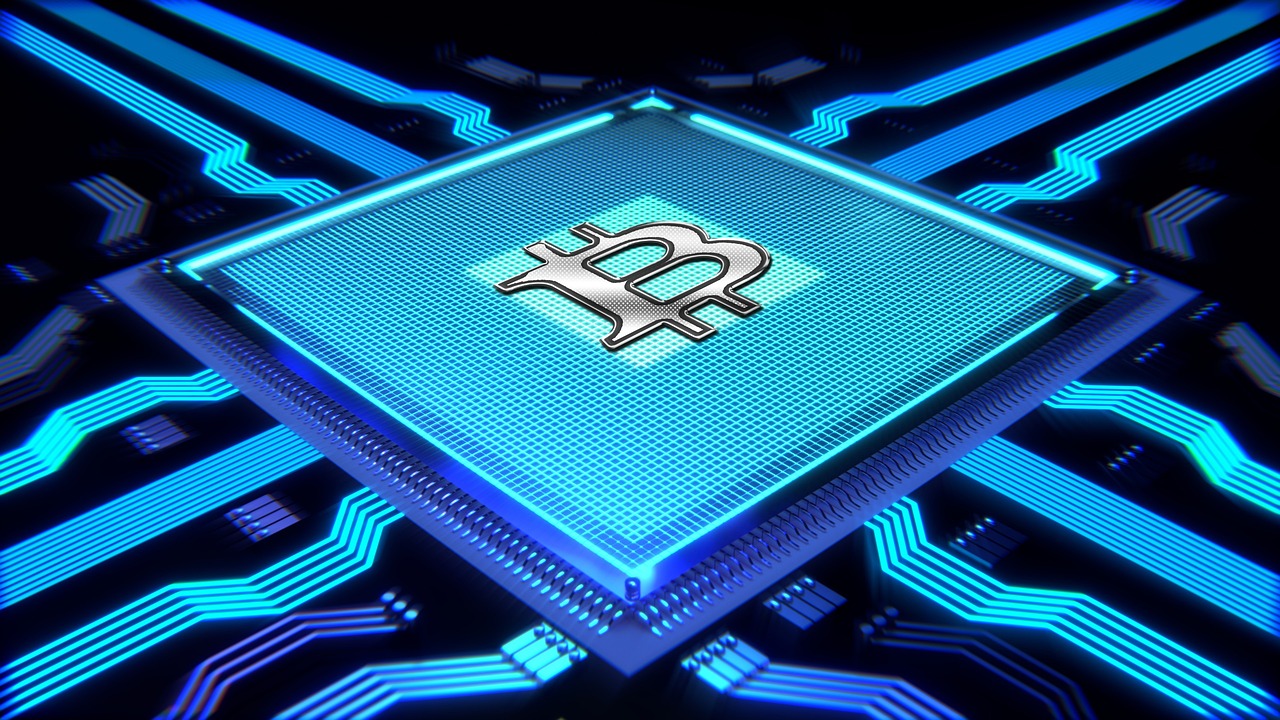
Types of Hot Wallets
When it comes to managing your cryptocurrencies, understanding the various types of hot wallets is essential. Hot wallets are designed for ease of access and convenience, allowing you to quickly send and receive digital currencies. However, they do come with their own set of risks, primarily due to their connection to the internet. Let’s dive into the three most common types of hot wallets: web wallets, mobile wallets, and desktop wallets.
Web wallets are perhaps the most accessible option. They are hosted on a cloud server and can be accessed through any web browser. This means you can check your balances or make transactions from anywhere, anytime. However, this convenience comes at a cost. Web wallets are particularly vulnerable to phishing attacks and hacking attempts, as they store your private keys online. It’s crucial to use reputable providers and implement strong security measures, such as two-factor authentication.
Mobile wallets are another popular choice, especially for those who prefer to manage their cryptocurrencies on the go. These apps are installed directly on your smartphone, providing a user-friendly interface for transactions. While mobile wallets offer convenience, they can also be susceptible to malware or theft if your device is compromised. Make sure to keep your phone secure and consider using wallets that offer additional security features like biometric authentication.
Lastly, we have desktop wallets. These wallets are installed on your personal computer and provide a balance between accessibility and security. Since your private keys are stored locally, desktop wallets are typically less vulnerable to online threats compared to web wallets. However, they can still be exposed to risks if your computer is infected with malware. Regularly updating your software and employing antivirus protection can help mitigate these risks.
In summary, each type of hot wallet has its own unique features and security considerations. Whether you choose a web wallet for its convenience, a mobile wallet for its portability, or a desktop wallet for its enhanced security, it’s essential to remain vigilant and practice good security hygiene. Here’s a quick comparison of the three types:
| Type of Hot Wallet | Accessibility | Security Level | Best For |
|---|---|---|---|
| Web Wallet | High | Low to Medium | Frequent transactions |
| Mobile Wallet | Medium to High | Medium | On-the-go access |
| Desktop Wallet | Medium | Medium to High | Users prioritizing security |
Ultimately, the choice of which hot wallet to use will depend on your specific needs and how you plan to interact with your cryptocurrencies. Just remember, while hot wallets offer convenience, they require a bit more caution and proactive security measures to keep your assets safe.
Q: Are hot wallets safe to use?
A: Hot wallets are generally safe for everyday transactions, but they do carry risks due to their online nature. Always use strong passwords and enable two-factor authentication to enhance security.
Q: Can I transfer funds from a hot wallet to a cold wallet?
A: Yes, transferring funds from a hot wallet to a cold wallet is a common practice for enhancing security, especially for long-term storage of cryptocurrencies.
Q: What should I do if I lose access to my hot wallet?
A: If you lose access to your hot wallet, try to recover it using any backup or recovery options provided by the wallet service. If you cannot recover it, unfortunately, you may lose access to your funds.

Web Wallets
Web wallets are among the most popular types of hot wallets, offering users a straightforward and convenient way to access their cryptocurrencies. These wallets operate through web browsers, allowing you to manage your digital assets from virtually any device with an internet connection. Imagine being able to check your crypto balance or make a transaction while sipping coffee at your favorite café—that's the allure of web wallets!
However, with great convenience comes great responsibility. Since web wallets are always connected to the internet, they are particularly vulnerable to a range of security threats, including phishing attacks, malware, and hacking attempts. To illustrate, think of your web wallet as a house with an open front door; while it’s easy to enter, it also makes it easier for unwanted visitors to come in. Therefore, it's crucial to implement robust security measures to protect your assets.
When using a web wallet, here are a few best practices to enhance your security:
- Use Strong Passwords: Create complex passwords that combine letters, numbers, and special characters. Avoid using easily guessable information like birthdays or names.
- Enable Two-Factor Authentication (2FA): This adds an extra layer of security by requiring a second form of verification before you can access your wallet.
- Be Wary of Phishing Attempts: Always double-check URLs and avoid clicking on suspicious links. Phishers often create fake sites that look similar to legitimate wallets.
One of the significant advantages of web wallets is their user-friendly interface, making them an excellent choice for beginners. Most web wallets come equipped with intuitive dashboards that allow you to send, receive, and manage your cryptocurrencies with ease. However, it's essential to choose a reputable provider. Look for wallets that have a solid track record and positive user reviews.
In summary, web wallets offer a blend of convenience and accessibility, perfect for those who need quick access to their cryptocurrencies. Nevertheless, you must remain vigilant about security practices to ensure that your digital assets are safe. Just like you wouldn't leave your front door wide open, you should take steps to secure your web wallet against potential threats.
- What is a web wallet? A web wallet is an online service that allows users to store and manage their cryptocurrencies through a web browser.
- Are web wallets safe? While web wallets offer convenience, they are vulnerable to security threats. It's crucial to implement strong security measures.
- Can I access my web wallet from any device? Yes, as long as you have an internet connection and a compatible web browser, you can access your web wallet from any device.
- What should I do if I suspect my web wallet has been compromised? Immediately change your password, enable two-factor authentication, and contact the wallet service provider for assistance.

Mobile Wallets
Mobile wallets have revolutionized the way we interact with cryptocurrencies, offering a seamless blend of convenience and functionality. Imagine having your entire crypto portfolio right in your pocket, accessible at any moment. That’s the beauty of mobile wallets! These applications, designed for smartphones, allow users to send, receive, and manage their digital assets with just a few taps on their screens. However, while the ease of access is a major advantage, it also comes with its own set of challenges.
One of the key features of mobile wallets is their ability to facilitate quick transactions. Whether you’re splitting a dinner bill with friends or making a spontaneous purchase, mobile wallets make it incredibly easy to handle your cryptocurrencies on the go. Most of these wallets support various cryptocurrencies, allowing users to manage multiple assets within a single app. But how do they stack up in terms of security? This is where things get a bit tricky.
Since mobile wallets are connected to the internet, they are inherently more vulnerable to security threats compared to their cold wallet counterparts. Hackers and cybercriminals are always on the lookout for weaknesses in mobile apps, and if your device gets compromised, your assets could be at risk. Therefore, it’s crucial to implement strong security measures. Here are some best practices for keeping your mobile wallet secure:
- Use Strong Passwords: Always create complex passwords that are hard to guess.
- Enable Two-Factor Authentication (2FA): This adds an extra layer of security by requiring a second form of verification.
- Keep Your Software Updated: Regular updates can patch security vulnerabilities.
- Download from Trusted Sources: Only install wallets from reputable app stores or official websites.
Additionally, many mobile wallets now offer features like biometric authentication (fingerprint or facial recognition) to enhance security further. This not only makes accessing your wallet more convenient but also adds another layer of protection against unauthorized access.
In summary, mobile wallets are an excellent option for those who prioritize convenience and quick access to their cryptocurrencies. However, they require a proactive approach to security. By implementing best practices and staying vigilant, you can enjoy the benefits of mobile wallets while minimizing the risks associated with them.
1. Are mobile wallets safe for storing cryptocurrencies?
While mobile wallets offer convenience, they are more vulnerable to hacking than cold wallets. Implementing strong passwords and two-factor authentication can enhance security.
2. Can I store multiple cryptocurrencies in a mobile wallet?
Yes, many mobile wallets support various cryptocurrencies, allowing you to manage multiple assets from a single application.
3. What happens if I lose my phone?
If you lose your phone, the safety of your funds largely depends on the security measures you have in place, such as strong passwords and backup recovery phrases.
4. How do I choose the right mobile wallet?
Look for wallets with good reviews, strong security features, and a user-friendly interface. Always download from trusted sources.

Types of Cold Wallets
When it comes to securing your cryptocurrencies, cold wallets are the go-to solution for many savvy investors. These wallets operate offline, which makes them significantly less vulnerable to hacking attempts compared to their hot wallet counterparts. There are two primary types of cold wallets that you should be aware of: hardware wallets and paper wallets. Each of these options has its own unique advantages and considerations, making it essential to understand how they work before making a choice.
Hardware wallets are physical devices that store your private keys offline. They resemble USB drives and are designed specifically for storing cryptocurrencies securely. The beauty of hardware wallets lies in their ability to keep your keys away from the internet, which means that even if your computer is compromised, your funds remain safe. Some popular hardware wallets include:
- Ledger Nano S - Known for its robust security features and user-friendly interface.
- Trezor Model T - Offers a touch screen and supports a wide range of cryptocurrencies.
- KeepKey - A sleek design that provides solid security for your digital assets.
On the other hand, paper wallets represent a more traditional method of cold storage. Essentially, a paper wallet is a physical printout of your public and private keys. This method is incredibly secure as long as you keep the paper in a safe place, away from prying eyes and potential disasters. However, creating a paper wallet requires careful attention to detail. You must ensure that the generation process is done offline to avoid exposure to online threats. The downside is that if you lose the paper or it gets damaged, you could permanently lose access to your cryptocurrencies.
In terms of usability, hardware wallets tend to be more convenient for regular transactions, as they allow you to connect to your computer securely and manage your assets without exposing your private keys. Conversely, paper wallets are more suited for long-term storage, akin to stashing cash in a safe deposit box—once it's printed and stored, you don't have to think about it until you need to access your funds.
Ultimately, the choice between hardware and paper wallets depends on your specific needs and how you plan to use your cryptocurrencies. If you’re actively trading or need quick access to your funds, a hardware wallet is likely the best choice. However, if you're looking to store your assets for a long period without touching them, a paper wallet could be the perfect solution. Remember, regardless of the type of cold wallet you choose, always prioritize security by keeping backups and ensuring your storage methods are safe from theft or damage.
Q: What is the main advantage of using a cold wallet?
A: The primary advantage of using a cold wallet is enhanced security. Since cold wallets are not connected to the internet, they are much less susceptible to hacking and online threats.
Q: Can I access my cryptocurrencies stored in a cold wallet easily?
A: Accessing cryptocurrencies in a cold wallet is less convenient than in a hot wallet. While hardware wallets allow for easier transactions, paper wallets require you to manually enter your keys, which can be cumbersome.
Q: Are cold wallets completely safe?
A: While cold wallets provide a high level of security, they are not entirely foolproof. It's essential to protect your physical devices or paper wallets from theft, damage, or loss.
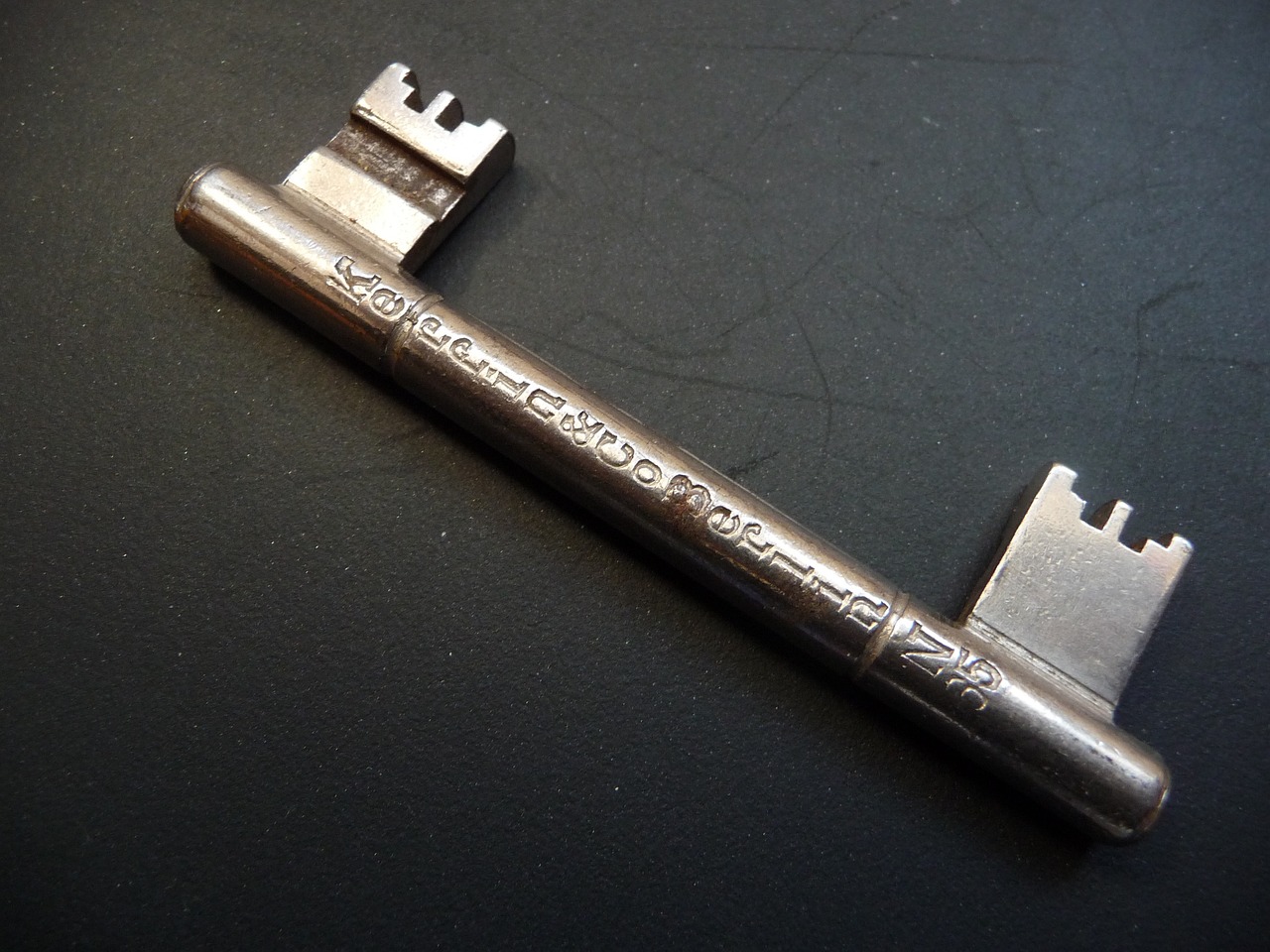
Security Considerations
When it comes to storing your cryptocurrencies, security should be your top priority. The choice between hot and cold wallets is not just a matter of convenience; it also involves understanding the potential risks associated with each type. Hot wallets, while user-friendly and accessible, are always connected to the internet, making them susceptible to various online threats. On the other hand, cold wallets, which are offline storage solutions, offer enhanced security but can be less convenient for regular transactions. This dichotomy makes it essential to weigh your options carefully.
Let’s dive into some of the security implications you should consider when deciding between these two types of wallets. For hot wallets, the risks mainly stem from their constant internet connectivity. They can be exposed to hacking attempts, phishing scams, and malware attacks. Therefore, it’s crucial to implement strong security measures, such as using strong passwords and enabling two-factor authentication. Always be aware of the latest security threats and stay updated on best practices to safeguard your assets.
In contrast, cold wallets provide a robust layer of security because they are not connected to the internet. However, this does not mean they are entirely foolproof. The physical security of your cold wallet is just as important. For instance, if you choose a hardware wallet, you need to keep it in a secure location to prevent theft or damage. Additionally, backup keys must be handled with care. Losing access to your backup keys could mean losing your cryptocurrencies forever.
To help you better understand the security landscape of hot and cold wallets, consider the following table that outlines the key differences:
| Feature | Hot Wallets | Cold Wallets |
|---|---|---|
| Internet Connection | Always connected | Offline |
| Accessibility | Highly accessible | Less accessible |
| Security Level | Lower | Higher |
| Best Use Case | Frequent transactions | Long-term storage |
Ultimately, the choice between hot and cold wallets comes down to your individual needs and risk tolerance. If you’re the type who trades frequently and values convenience, a hot wallet might be the right choice for you. However, if you’re looking to invest for the long haul and want to keep your assets safe from online threats, a cold wallet could be the way to go. Remember, no matter which option you choose, staying informed and implementing best security practices is key to protecting your investments.
Here are some common questions people have about securing their cryptocurrency:
- What is the safest way to store my cryptocurrencies? The safest way is to use a cold wallet, as it is not connected to the internet.
- Can I use both hot and cold wallets? Yes, many users opt for a combination of both to balance accessibility and security.
- What happens if I lose my cold wallet? If you lose your cold wallet and do not have a backup of your keys, you may lose access to your cryptocurrencies permanently.
- How often should I update my passwords? It’s advisable to update your passwords regularly and use unique passwords for different wallets.

Best Practices for Hot Wallets
When it comes to using hot wallets, security should be your top priority. While these wallets offer incredible convenience for quick transactions, their connection to the internet makes them more vulnerable to cyber threats. So, how can you ensure your digital assets are safe? Here are some best practices to follow:
First and foremost, always use strong and unique passwords. A weak password is like leaving your front door wide open for intruders. Combine letters, numbers, and special characters to create a robust password that is difficult to guess. Additionally, avoid using the same password across multiple platforms. This way, even if one account is compromised, your other wallets remain secure.
Another essential layer of security is two-factor authentication (2FA). This feature adds an extra step to the login process, requiring not only your password but also a second piece of information, such as a code sent to your mobile device. Think of it as having a security guard at your front door who checks your ID before letting you in. Enabling 2FA can significantly reduce the risk of unauthorized access.
Moreover, it's crucial to stay informed about potential online threats. Phishing attacks are rampant in the cryptocurrency space, where hackers impersonate legitimate services to trick you into revealing sensitive information. Always double-check URLs and be cautious of unsolicited emails. If something seems off, it probably is!
Additionally, consider using a reputable wallet provider. Research the wallet's history and user reviews to ensure it has a good track record concerning security. Some wallets even offer insurance against hacks, providing an added layer of peace of mind. Remember, not all wallets are created equal, and choosing a reliable provider is vital.
Finally, regularly update your software and wallet applications. Developers frequently release updates to patch security vulnerabilities. By keeping your software up to date, you're essentially fortifying your defenses against potential threats. Think of it as regularly changing the locks on your doors to keep up with the latest security technology.
In summary, while hot wallets are convenient for everyday transactions, following these best practices can help mitigate risks. Always use strong passwords, enable two-factor authentication, stay vigilant against phishing attempts, choose reputable wallet providers, and keep your software updated. By taking these precautions, you can enjoy the benefits of hot wallets while keeping your cryptocurrencies secure.
- What is the main difference between hot and cold wallets?
Hot wallets are connected to the internet, making them convenient but less secure. Cold wallets are offline, providing enhanced security for long-term storage. - Can I use both hot and cold wallets?
Absolutely! Many users opt to keep a portion of their cryptocurrencies in a hot wallet for easy access while storing the majority in a cold wallet for security. - How do I know if a wallet is secure?
Look for features like two-factor authentication, strong encryption, and positive user reviews. Research the wallet's history and any past security incidents. - What should I do if I suspect my hot wallet has been compromised?
Immediately transfer your funds to a secure wallet, change your passwords, and enable two-factor authentication. Additionally, monitor your accounts for any unauthorized activity.

Best Practices for Cold Wallets
When it comes to securing your cryptocurrencies in cold wallets, there are several best practices you should follow to ensure your digital assets remain safe. First and foremost, it's essential to securely store your backup keys. This means keeping them in a location that is not only safe from physical damage but also inaccessible to unauthorized individuals. For example, consider using a safe deposit box at a bank or a fireproof safe at home. Remember, losing your backup keys can mean losing access to your funds permanently!
Another critical aspect of managing cold wallets is the choice of storage medium. Hardware wallets are popular for their security features, but they still need to be stored properly. Always keep your hardware wallet in a safe and dry environment, away from potential hazards such as water or extreme temperatures. Additionally, if you opt for a paper wallet, make sure to print it on high-quality paper and store it in a secure location. You wouldn’t want your private keys fading away or getting damaged over time!
Moreover, consider creating multiple copies of your backup keys and storing them in different secure locations. This redundancy ensures that even if one copy is lost or damaged, you still have access to your funds. However, be cautious about where you store these copies; they should not be easily accessible to others. Think of it like hiding spare keys to your house: you want them to be safe but also retrievable when needed.
Lastly, always keep your cold wallet software updated. Just like any other software, updates often include important security patches that protect against newly discovered vulnerabilities. Regularly check for updates from the manufacturer of your cold wallet and apply them promptly. This proactive approach can make a significant difference in safeguarding your cryptocurrencies.
In summary, the best practices for cold wallets revolve around secure storage, redundancy, and keeping your software updated. By following these guidelines, you can significantly enhance the security of your cryptocurrency holdings and enjoy peace of mind knowing your assets are well protected.
- What is a cold wallet? A cold wallet is an offline storage solution for cryptocurrencies, providing enhanced security against hacking.
- How do I create a cold wallet? You can create a cold wallet using hardware devices or by generating a paper wallet with your private keys.
- Are cold wallets completely safe? While cold wallets are more secure than hot wallets, they are not entirely risk-free. Proper management and storage practices are essential.
- Can I use a cold wallet for daily transactions? Cold wallets are not ideal for frequent transactions due to their offline nature. They are best suited for long-term storage.
Frequently Asked Questions
- What is the main difference between hot and cold wallets?
The primary difference lies in their connection to the internet. Hot wallets are online and provide easy access to your cryptocurrencies, making them convenient for trading. However, this also exposes them to potential hacking risks. Cold wallets, on the other hand, are offline and offer enhanced security, making them ideal for long-term storage.
- Are hot wallets safe to use?
Hot wallets can be safe if you follow best practices. Using strong passwords, enabling two-factor authentication, and being cautious of phishing attempts can significantly enhance their security. However, keep in mind that no online wallet is entirely risk-free.
- What types of hot wallets are available?
There are several types of hot wallets, including web wallets, mobile wallets, and desktop wallets. Each type has its unique features and varying levels of security, so it’s essential to choose one that fits your needs while considering the associated risks.
- Can I use a cold wallet for everyday transactions?
While you technically can use a cold wallet for transactions, it’s not practical for daily use due to the need to connect to the internet to access your funds. Cold wallets are best suited for long-term storage, while hot wallets are more convenient for frequent transactions.
- How do I secure my cold wallet?
To secure your cold wallet, it’s crucial to keep your backup keys in a safe place and ensure that the storage medium (like a hardware wallet or paper wallet) is stored securely. Avoid sharing your keys and be mindful of where you keep them to prevent loss or theft.
- What are the best practices for using hot wallets?
To maximize the security of your hot wallet, use strong, unique passwords, enable two-factor authentication, and regularly update your security software. Additionally, always stay alert for potential online threats, such as phishing scams.
- What should I consider when choosing between hot and cold wallets?
Consider your usage habits. If you frequently trade cryptocurrencies, a hot wallet may be more suitable. However, if you’re looking to hold your assets long-term, a cold wallet is a safer option. Always weigh the convenience against the level of security you need.


